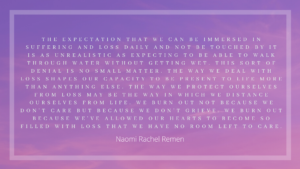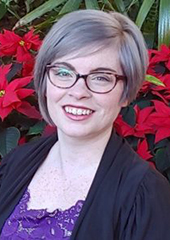
Is This Burnout?
Written by Alaina Smith MA, LPC, CAADC
As you face the stress and chaos of work and life on a day to day basis, do you find yourself asking “Is this burnout?” Our attentions and focus are split into so many facets that it is easy to feel stretched thin. Add a global pandemic to the equation and the necessary life changes that entails as other forms of stress. It can seem that feeling “normal” is a million miles away. To understand if you are burning out, it is important to know how burnout is defined. We also need to ask, what else could be going on right now?

Could it be compassion fatigue?
Compassion fatigue is a term that was once reserved for those in helping professions. However, it is beginning to apply to a larger group of people. The types of life changes that have occurred in many people’s lives as a result of this pandemic add to this. The term compassion fatigue refers to a form of exhaustion that develops over time. This is usually seen in those who are helping professionals or caregivers. It is a gradual erosion of the very things that make us good helpers and caregivers: our compassion, empathy and ability to hope.
In The Compassion Fatigue Workbook, Françoise Mathieu states this “has been described as ‘the cost of caring’ for others in emotional pain.” Many parents and family members are finding themselves in this place because of being the primary source of support for children or others in the family dealing with emotional pain. Additionally, many have lost access to other forms of support or outlets for that pain.
What really is burnout?
Burnout is a form of exhaustion, absolutely. But this exhaustion is different from compassion fatigue in that it is because of how you feel about your work, not the act of your work. Burnout occurs for many reasons but it typically stems from issues such as low job satisfaction and feeling powerless or overwhelmed at work. This can occur in any type of profession, not just for those who are caregivers.
What’s the difference, can’t I have both?
Burnout can lead to making you more vulnerable to compassion fatigue. For some people they are linked, but it is also possible to experience them separately. Françoise Mathieu, in The Compassion Fatigue Workbook, describes the difference well stating that “compassion fatigue refers to the profound emotional and physical erosion that takes place when helpers are unable to refuel and regenerate” and that “burnout has to do with the stress and frustration caused by the workplace: having poor pay, unrealistic demands, heavy workload, heavy shifts, poor management, and inadequate supervision.”
This sounds like me, what do I do about it?
Whether you identify with both compassion fatigue and burnout or one of the two, you are not stuck in this place of feeling this weight and stress. A first step in helping yourself is to take some time to sit down and really assess what is going on underneath your fatigue, stress, and struggles. Ask yourself if it feels constant or feels work related. A great tool to help with this is the ProQol (Professional Quality of Life) self-test. You can access it at http://www.proqol.org/ProQol_Test.html in order to have some perspective. By the way, being a stay at home parent or primary caregiver to someone is definitely a form of profession! This does not only apply to those who work outside the home.
A second step is to ask yourself, “what is within my ability to change?” Some things that contribute to compassion fatigue are addressed simply by learning how to more effectively refuel and regenerate. Some ways to do this could be:
- increase self-care
- spend more time with family or friends (virtual or otherwise)
- eat healthier
- sleep better
- drink more water
- see a therapist
- see your medical doctor
If the issue is burnout, figure out if there are ways to address some of the issues at work leading to that. Can there be scheduling changes, can you more effectively manage your time, can anything be delegated to others? Talk with a trusted supervisor or mentor at work and explore your options. If you cannot come up with effective options, it may be time to look at doing a job or career change.

Alaina Smith, MA, LPC, CAADC is one of the bilingual therapists at CPC, able to provide services in Spanish. She specializes in substance abuse, alcohol/drug addiction, gambling addiction and sex addiction. Her heart is in helping others to find their voice and she seeks to see her clients the way that God sees them, as well as to help them along the journey to learning to love themselves and see themselves through God’s eyes. When Alaina is not in the office you can find her spending time with family and enjoying the various festivals and events that Grand Rapids offers throughout the year. Learn more.
